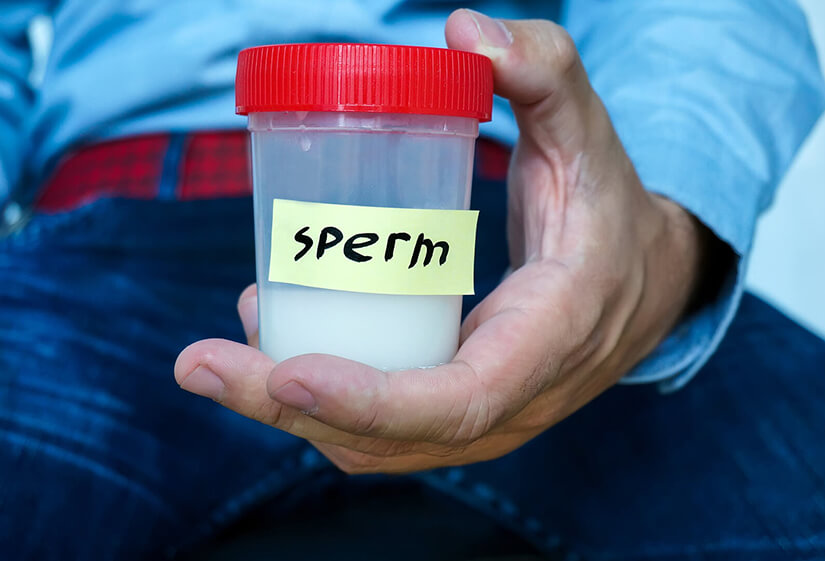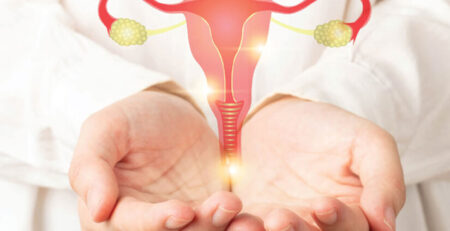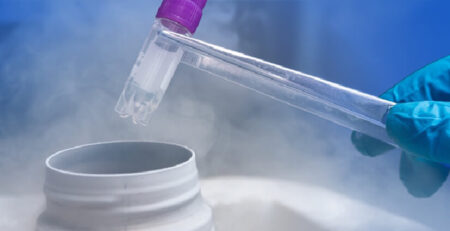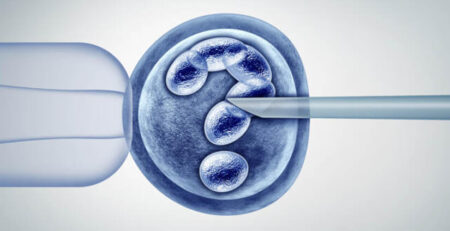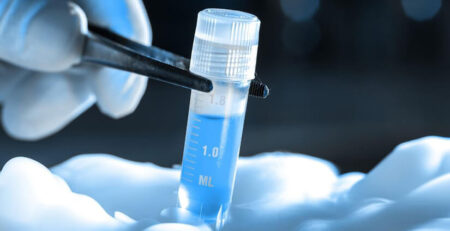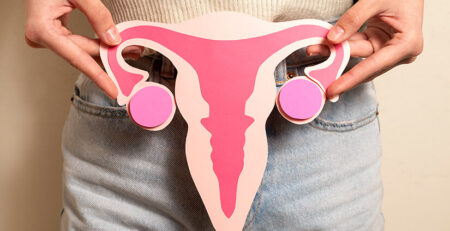Getting Pregnant with A Low Sperm Count
You probably don’t spend much time thinking about your sperm count. Right?
But if you and your partner are trying to get pregnant, it’s something you might want to consider.
You see, it only takes one sperm to fertilize an egg, but the odds aren’t always in your favour. The more sperm you have, the better your chances. So, if your sperm count is low, it might make it harder to get your partner pregnant. Medically, this condition is known as oligospermia.
But don’t worry; there are oligospermia treatments that can increase your chances of achieving pregnancy. In this blog, we will discover how these treatments help.
To get a better understanding of treatment options, first, we will understand what a normal semen report is, what low sperm count, aka oligospermia, is, and its causes.
Let’s get started!

Normal Semen Report
According to WHO, a normal semen report should meet the following criteria:
- Volume: At least 1.5 milliliters (ml).
- Sperm Count: Minimum 39 million sperm per ejaculate.
- Sperm Concentration: At least 16 million sperm per mL
- Motility: At least 40% of sperm should be moving.
- Morphology: At least 4% of sperm should have a normal shape.
If your semen report is within these ranges, then it is absolutely normal. However, these are just standard guidelines.
The semen analysis should be done only by an experienced embryologist at a well-equipped IVF centre in Delhi. He/She will check your sperm count, motility, morphology, and other factors and can also help you identify any underlying medical conditions affecting your sperm.
Depending on your semen report, the oligospermia is further divided into three categories to find the customised treatment for low sperm count:
- Mild Oligospermia: Your sperm count is between 10 and 16 million sperm per millilitre (ml).
- Moderate Oligospermia: Your sperm count is between 5 and 10 million per ml.
- Severe Oligospermia: Your sperm count is less than 5 million per ml.
Note: If oligospermia is not treated on time, it could lead to azoospermia (no sperm in the ejaculate).
What Causes Low Sperm Count?
Medical factors, environmental factors, and lifestyle factors contribute equally to low sperm count. Understanding these factors can help you and your doctor to find an effective Oligospermia treatment. So, let’s know these causes.
Medical Factors
Several health issues and even medical treatments can cause oligospermia. If you have had testicular problems, like injuries, surgeries, or even genetic conditions like Klinefelter syndrome, your sperm count might be low.
Cancer treatments, like chemo, radiation, or surgery, can also mess with your hormones and sperm production. Radiation directly damages the sperm-making cells in your testicles. At the same time, radiation or surgery to the brain can also lower your sperm count because hormones from your brain help make sperm.
Other medical conditions may include:
- Varicocele, swelling in the veins that drain the testicles, is one of the most prevalent causes of male infertility, requiring oligospermia treatment.
- If you have had any infections, especially STIs, it can sometimes mess up your reproductive system by causing blockages, scars, or other damage, leading to low sperm count.
- Problem with ejaculation
- Conditions like cystic fibrosis, or even just being a carrier of the gene, can block sperm from entering the semen.
- Certain medications like antifungal, antibiotic, and ulcer medicine.
- Previous surgeries like testicular surgery, fixing a hernia, and even getting a vasectomy can affect the sperm count.

Environmental Factors
You may be surprised to learn that overexposure to certain environmental elements can affect your sperm count. Knowing these factors can help to find an effective oligospermia treatment.
These elements may include:
- Being in contact with certain industrial chemicals, like benzenes, toluene, xylene, herbicides, pesticides, organic solvents, painting materials, and other chemicals for too long might mess with your sperm count.
- Heavy metals like lead can put you at a higher risk of oligospermia.
- Radiation might reduce your sperm count. Things may take a few years to return to normal, but occasionally, the damage is irreversible.
- High temperatures reduce sperm production and function. Sitting for extended lengths of time, wearing tight clothes, or working on a laptop computer for long periods may also raise the temperature in your scrotum and limit sperm production somewhat.
Lifestyle Factors
Your daily lifestyle can also impact your sperm count. How? Let’s see.
- Smoking is a bad habit for several reasons, including a decrease in sperm count. Smoking destroys the DNA in your sperm cells, making it more difficult for them to fertilize an egg.
- Alcohol can also damage your sperm cells and lower your testosterone levels. Testosterone is a hormone that is essential for sperm production.
- Being overweight or obese can lower your testosterone levels and damage your sperm cells. Losing even a small amount of weight can help to improve your sperm count.
- Stress can take a toll on your body in many ways, and it can also lower your sperm count. When stressed, your body releases hormones that can interfere with sperm production.
- A diet high in processed foods and sugary drinks can also damage your sperm cells.
- Taking steroidal supplements with gyming can decrease the sperm count, sometimes even making it zero
Treatment for Low Sperm Count
Now you have a clear understanding of low sperm count and its cause. It’s time to explore the options to get pregnant with a low sperm count.
Make a Healthy Lifestyle While Trying Naturally
Sometimes, simply modifying the lifestyle can make a big difference. A diet rich in natural antioxidants, nuts, seeds, berries etc. consuming whole grains, avoiding processed foods, exercising regularly enhances the sperm number. Having intercourse every day or every other day for a few days before, during, and after ovulation can help the sperm reach the egg. You can use an ovulation kit to track your partner’s ovulation.
Also, quitting smoking, reducing alcohol consumption, adopting a healthy diet, and incorporating regular exercise into your routine can all have a positive impact on sperm count and overall health. Consult the fertility expert at the IVF Centre in Delhi to make essential adjustments to your lifestyle.
Infection Treatment
Understanding and treating the cause of infections can help you improve your sperm count. Your doctor may prescribe you antibiotics that can clear up infections. But they can’t always bring back your fertility.
Hormonal Treatment
If your body is not making enough of the hormones needed to produce sperm, your doctor may prescribe some hormonal medications to improve sperm count. This may involve tablets or injections and should be taken only after proper consultation.
Associated Reproductive Treatments
If lifestyle changes and other treatments for low sperm count are not successful, there are several associated reproductive treatments available that can help you get pregnant. These include intrauterine insemination (IUI), in vitro fertilization (IVF), and intracytoplasmic sperm injection (ICSI).
Intrauterine Insemination (IUI): In the case of mild oligospermia, intrauterine insemination (IUI) is one of the most effective oligospermia treatments because IUI needs a certain number of sperms to help with fertilization, which would not be possible with severe oligospermia.
However, there is a thing; it usually works well as long as the woman has no fertility problems. It is also recommended for men with low sperm motility, but the semen sample needs to have at least 5 million motile sperm after it’s been processed.
IUI is a quite simple procedure. First, you have to provide a semen sample at your IVF centre in Delhi. Then, it is washed and prepared to eliminate all the weak and non-motile sperms and remove any debris. Once the motile sperms are concentrated in a small volume of fluid, your doctor uses a tiny tube to place them directly into your partner’s uterus. This gives the sperms a head start since they don’t have to travel from the vagina to the fallopian tubes.
In Vitro Fertilization (IVF): IVF is like a fertility helping hand when other oligospermia treatments haven’t worked for men with low sperm count, where the sperm and eggs get to meet up in a special dish outside the body. When they get fertilized, the formed tiny embryo is then placed back inside the woman’s uterus, where it can grow into a healthy baby.
In Vitro Fertilization (IVF) with Intracytoplasmic Sperm Injection (ICSI): If the sperm count is extremly low there’s no magic pill to fix it. But there’s an effective technique called IVF with ICSI that can help you conceive.
With ICSI, one single sperm is carefully picked and injected right into the egg, making it much easier for the egg to get fertilized.
ICSI is a great as severe oligospermia treatment for couples struggling to conceive due to male infertility, especially when there’s not enough sperm or the sperm are having a hard time finding their way to the egg.

Sperm Selection Technique
For couples dealing with severe male infertility, sometimes there is a need to choose the healthiest sperm to use for ICSI with the egg. This not only ensures better embryo development but also higher chances of success and lower miscarriage rates.
Donor Insemination
If you and your partner want to have a baby but don’t want to use your partner’s sperm due to genetic reasons for severe oligozoopsermia, then you can consider donor semen insemination. Donor insemination involves doing a simple intrauterine insemination procedure with semen sample obtained from ART donor semen banks. This can also be a good option when a couple has financial issues with high IVF treatment cost..
If you are dealing with low sperm count and looking for oligospermia treatment, book your consultation with Dr Rhythm Gupta, a reputable fertility expert in Delhi who can help you understand the right pathway to getting pregnant with a low sperm count.

